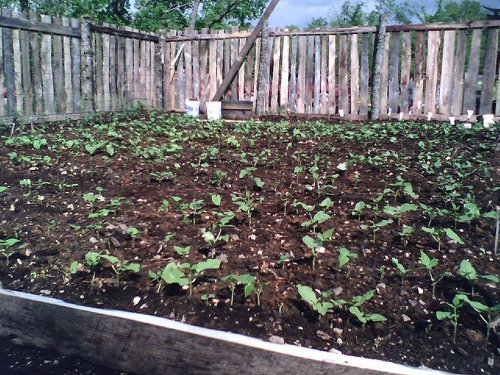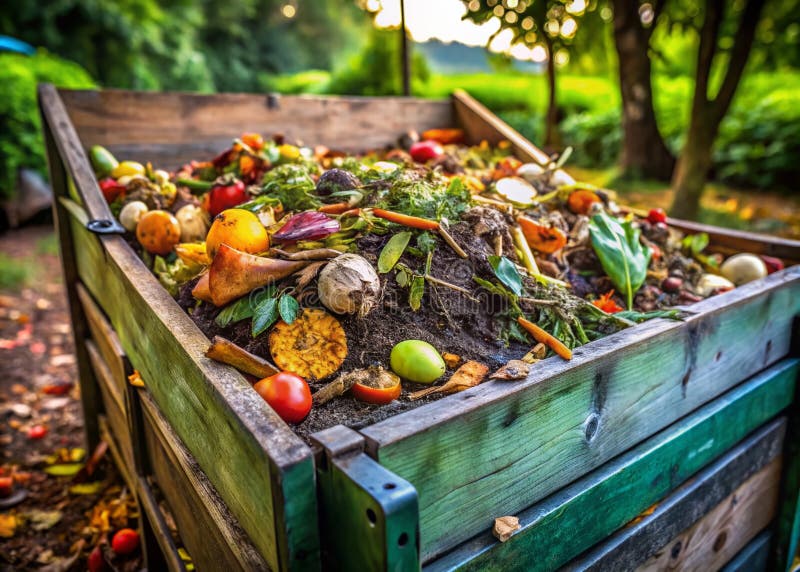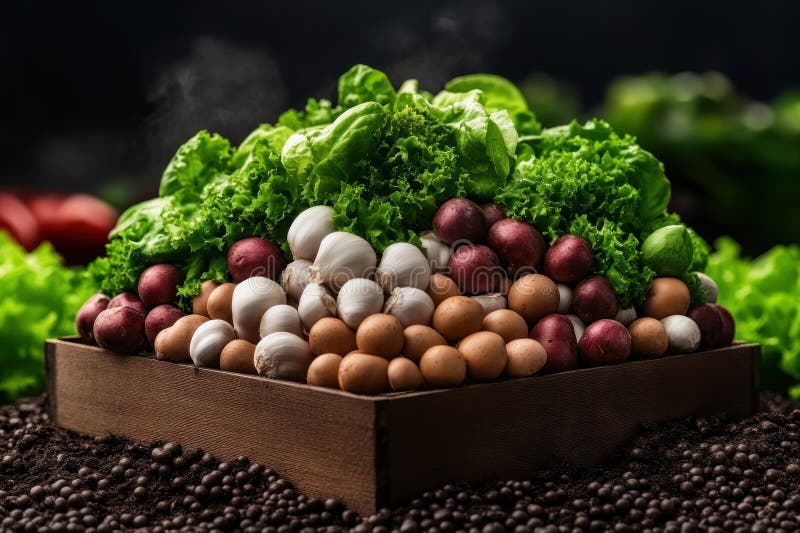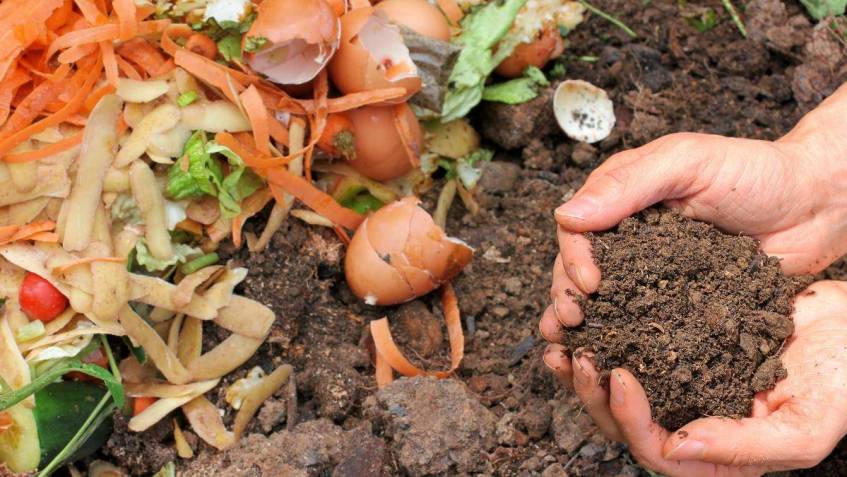
Grow Rich Soil Without Breaking the Bank: DIY Homestead Soil Amendments
Have you ever felt the sting of sticker shock while browsing the aisles of your local garden center? It’s easy to feel overwhelmed by the sheer volume of fertilizers, soil conditioners, and additives, not to mention the hefty price tags attached. The truth is, building healthy, thriving soil for your homestead garden doesn't have to drain your bank account. In fact, some of the best soil amendments are probably already sitting in your kitchen, yard, or barn!
In this post, you'll learn how to create nutrient-rich soil amendments using readily available or waste materials, saving money and reducing waste while improving your garden's health and productivity. We'll explore the magic of composting, unlock the hidden potential of coffee grounds and eggshells, transform yard waste into garden gold, brew a liquid feast for your plants with compost tea, and delve into the power of manure (when handled correctly). Get ready to unlock your garden's potential with these frugal and effective DIY solutions!

Kitchen Compost Magic: Unleashing the Power of Food Scraps
Composting is the cornerstone of any sustainable homestead. It's the process of breaking down organic matter into a nutrient-rich substance called humus, which acts as a fantastic soil amendment. Compost improves soil structure, enhances water retention, and provides essential nutrients for plant growth. Plus, it significantly reduces the amount of waste you send to the landfill!
The basic principle of composting involves balancing "greens" (nitrogen-rich materials) and "browns" (carbon-rich materials). Greens include things like:
- Fruit and vegetable scraps
- Coffee grounds (yes, we'll get to those later!)
- Grass clippings (untreated)
Browns include:
- Dried leaves
- Shredded cardboard
- Newspaper (unprinted or soy-based ink only)
- Small twigs and branches
Aim for a ratio of roughly 2 parts browns to 1 part greens. This provides the ideal environment for the microbes that break down the organic matter.
You can compost in various ways, from a simple pile in the backyard to a rotating tumbler or even a vermicomposting system (using worms!). Regardless of the method, the key is to keep the compost moist (like a wrung-out sponge) and aerated (turn it regularly).
Common Composting Mistakes (and How to Avoid Them):
- Too dry: Add water to moisten the pile.
- Too wet: Add more brown materials to absorb excess moisture.
- Smelly: Usually caused by a lack of aeration. Turn the pile more frequently.
- Attracting pests: Avoid composting meat, dairy, and oily foods, as these attract unwanted visitors.

Bokashi Composting
For those dealing with limited space, bokashi composting is another option. Bokashi uses a special bran inoculated with beneficial microbes to ferment food waste (including meat and dairy) in an airtight container. The fermented material is then buried in the garden, where it breaks down quickly, enriching the soil.
Key Takeaway: Composting transforms kitchen waste into a valuable soil amendment, reducing landfill waste and providing free fertilizer.
Coffee Grounds & Eggshells: Breakfast for Your Garden
Don't toss those coffee grounds and eggshells! They're valuable resources for your garden.
Coffee Grounds:
Coffee grounds are a great source of nitrogen, which is essential for healthy plant growth. They also help improve soil drainage and can act as a mild pest repellent. Used coffee grounds are acidic but tend to neutralize quickly in the soil.
- How to Use: Spread coffee grounds thinly around plants or mix them into your compost pile. Be sure to let them dry before adding to the compost to prevent clumping.
Eggshells:
Eggshells are rich in calcium carbonate, which is beneficial for plant health. Some gardeners claim eggshells can help prevent blossom-end rot in tomatoes and peppers, a condition caused by calcium deficiency. While the jury is still out on the direct impact of eggshells on pH levels because of their slow decomposition, they still make a valuable addition to the soil.
- How to Use: Rinse eggshells thoroughly and let them dry completely. Crush them into a fine powder using a blender or mortar and pestle. Sprinkle the powder around plants or mix it into the soil.

Key Takeaway: Common kitchen "waste" products like coffee grounds and eggshells offer valuable nutrients for your garden and help reduce your overall waste.
Yard Waste Gold: Turning Leaves & Grass Clippings into Soil Boosters
Your yard is another treasure trove of potential soil amendments. Instead of bagging up those leaves and grass clippings, put them to work in your garden.
Fallen Leaves:
Fallen leaves are an excellent source of carbon and can be used as mulch or compost. As mulch, they help suppress weeds, retain moisture, and insulate the soil. As compost, they break down slowly, providing a steady release of nutrients.
- How to Use: Shred leaves with a lawnmower or leaf shredder to speed up decomposition. Use shredded leaves as mulch around plants or add them to your compost pile. When adding to the compost pile, layer them with greens to maintain a good carbon-to-nitrogen ratio.
Grass Clippings:
Grass clippings are rich in nitrogen and can be used as mulch or compost. However, it's crucial to use grass clippings from lawns that haven't been treated with herbicides or pesticides.
- How to Use: Spread grass clippings thinly around plants to avoid matting and blocking sunlight. Let them dry slightly before applying as mulch. Add grass clippings to your compost pile, layering them with browns to balance the nitrogen content.

Key Takeaway: Yard waste, often discarded, can be a valuable source of organic matter for improving soil health and reducing the need for store-bought mulch.
DIY Compost Tea: A Liquid Feast for Your Plants
Compost tea is a liquid extract made by steeping compost in water. It's a simple and effective way to deliver beneficial microbes and nutrients directly to your plants, boosting their health and immunity.
How to Make Compost Tea:
- Fill a 5-gallon bucket with dechlorinated water (let tap water sit for 24 hours to allow chlorine to dissipate).
- Add 1-2 cups of finished compost to the bucket.
- Aerate the mixture by using an aquarium air pump and air stone.
- Let the tea brew for 24-48 hours, stirring occasionally.
- Strain the tea through cheesecloth or a fine-mesh sieve.
- Dilute the tea with water (1 part tea to 10 parts water).
- Apply as a foliar spray or soil drench.
Benefits of Compost Tea:
- Increased microbial activity in the soil.
- Foliar feeding, providing nutrients directly to plant leaves.
- Disease suppression, helping plants resist fungal and bacterial infections.
Key Takeaway: Compost tea is a simple and effective way to deliver beneficial microbes and nutrients directly to your plants.
Manure Magic: The Power of Animal Waste
For homesteaders with livestock, manure is a valuable resource for enriching garden soil. Different types of manure offer varying levels of nutrients. Chicken and rabbit manure are particularly potent, while cow and horse manure are milder.
Important Considerations:
- Composting is essential: Raw manure can burn plants and introduce harmful pathogens. Composting manure before applying it to the garden is crucial.
- Carbon-to-Nitrogen Ratio: Like composting kitchen scraps, you'll need to balance the carbon and nitrogen content when composting manure. Add brown materials like straw or wood shavings to create a balanced compost pile.
- Source Matters: Be sure you know the source of your manure to avoid herbicide contamination. Some herbicides used on pastures can persist in manure and damage garden plants.
Key Takeaway: Manure provides a potent source of nutrients but requires responsible handling and composting to avoid burning plants or introducing contaminants.
Building a Frugal and Fertile Future
By embracing these simple DIY soil amendment techniques, you can create a thriving homestead garden without breaking the bank. You'll not only save money but also reduce waste and contribute to a more sustainable lifestyle. Remember, healthy soil is the foundation of a bountiful harvest.
As the leaves begin to fall this autumn, consider starting a new compost pile and collecting those valuable leaves. This small step can help prepare you for a flourishing garden next spring.
What are your favorite DIY soil amendment tips? Share your experiences in the comments below!